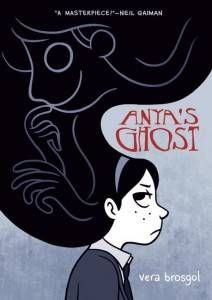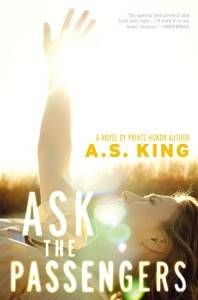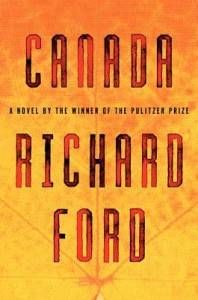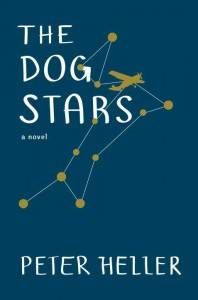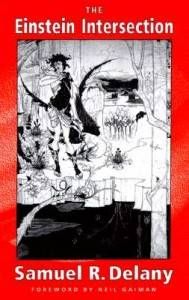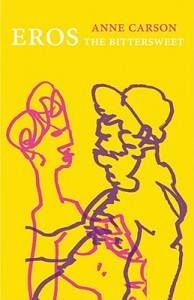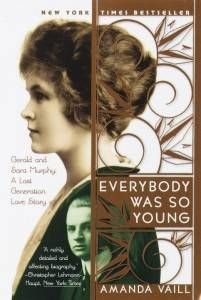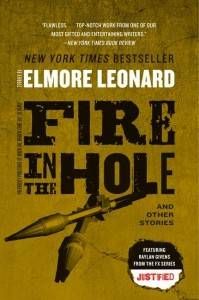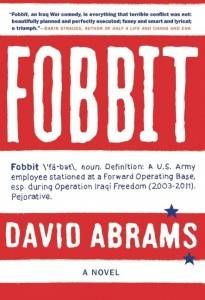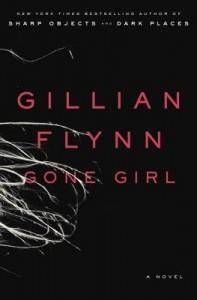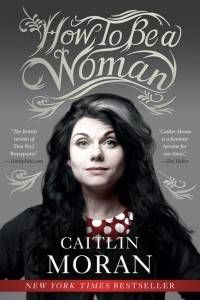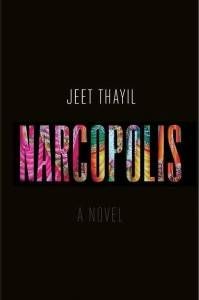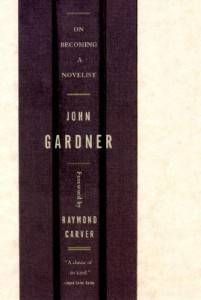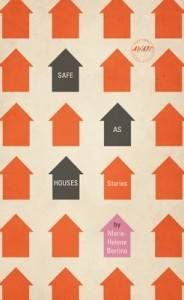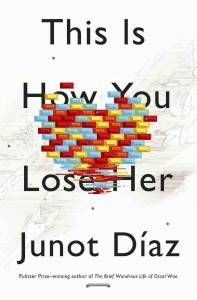Anya’s Ghost by Vera Brosgol Part Daria, part Coraline, this graphic novel perfectly captures the angst of being a teenager and the lengths to which one will go just to fit in, all within a charmingly dark and supernatural world. I had heard a lot of good things about this book (all true) but I wasn’t expecting how much heart it had. Vera Brosgol is an amazingly talented artist who, with a few simple lines, can portray exactly how her characters are feeling. –Ali Colluccio Ask the Passengers by A.S. King (Little, Brown Books for Young Readers, Oct. 23) From the Department of Some Adults Do Remember How Much Adolescence Sucks: A.S. King gets it. She really, really gets it. In this, her latest, King presents Astrid Jones, who is making sense of her sexuality, making peace with her dysfunctional family, and making up her mind to stop caring so much about what other people think. In between make-out sessions with her secret girlfriend and run-ins with her judgmental peers, Astrid escapes to a picnic table in her backyard. She lies there, watching the planes flying overhead, and sends all her love to the passengers. And what happens is amazing. “It feels good to love a thing and not expect anything back. It feels good to not get an argument or any pushiness or any rumors or any bullshit. It’s love without strings. It’s ideal.” Ask the Passengers is pretty ideal, too, whether you’re a young adult feeling the growing pains in real-time or a slightly older one who remembers all too clearly. This is a must-read of fist-pumping, highlighter-wearing-out-ing proportions. –Rebecca Joines Schinsky Canada by Richard Ford ILU, RICHARD FORD. I normally resist / am irritated by the preposterously masculine in literature, but some people (Guy Vanderhaeghe, I’m looking at you) can get away with it, and Richard Ford is a new addition to the stable of penis-waving literature that I don’t find fundamentally alienating. Also, this is just a really top-notch coming-of-age story. I found it really charming, compelling, and compulsive to read. It’s a good one if you loved, say, A Good Man by Vanderhaeghe. –Brenna Clarke Gray
The Dog Stars by Peter Heller First, let me just second what Rebs says about Ask the Passengers – A.S. King kicks ass. And I loved the new Diaz, too. And now on to The Dog Stars: After a superflu wipes out everyone he knows, Higs and his dog live a sparse existence in Colorado. There are things to do after the world as he knows it ends: Higs gardens and grows his own food, flys a Cesna around his land to check for approaching intruders or other signs of life, and occasionally interacts with his gun-crazy neighbor (though he worries his neighbor may one day no longer find him necessary.) One day, Higs hears another pilot on the radio, and – after contemplating it for three years – decides to go investigate. This is a hella-amazing first novel. It made me cry a lot – I love it when books make me cry. And it is deserving of comparisons to Cormac McCarthy’s The Road. I found it equally as wonderful. But The Dog Stars outshines The Road in that it is uplifting and willing to imagine that yes, humans will persevere after the end of the world. Shine on, you crazy diamonds. –Liberty Hardy The Einstein Intersection by Samuel R. Delany Neil Gaiman pretty much says it all in his introduction to this late-60s speculative fiction classic: “One can see this book as a portrait of a generation that dreamed that new drugs and free sex would bring about a fresh dawn and the rise of homo superior, wandering the world of the generation before them like magical children walking through an abandoned city – through the ruins of Rome, or Athens, or New York: that the book is inhabiting and reinterpreting the myths of the people who came to be known as the hippies.” It’s challenging, it’s “out there”, and it’s impossible to put down. –Scott Beauchamp Eros the Bittersweet by Anne Carson What begins as an exploration of eros/desire in ancient Greek poetry becomes a love letter to the imagination, to its action at the heart of human experience and its power to transform and even sanctify our lives. Carson examines the qualities of eros, ultimately comparing the action of erotic desire to the action of writing, reading, and learning, insisting that eros is a verb, a reach from the self to the beloved, from the reality to the written word, from what is known to what is unknown. One of the many things I love about this book is how Carson describes our human reaching – the imagination-fueled actions of eros and writing and learning – as inherently dangerous. Something essential-seeming in the self may be lost in the pursuit of love, the words we write will almost certainly fail to fully capture the reality we mean to describe, and what we seek to learn may be beyond our reach or, perhaps more threatening, undermine something we have long believed. All desire acted upon instigates potentially life-altering change, and Carson guides us through a range of ancient Greek writers’ and thinkers’ confrontations with this risk, from King Midas’s golden touch to Socrates’s moving case for venturing eros. –Loyal Miles Everybody Was So Young: Gerald and Sara Murphy: A Lost Generation Love Story by Amanda Vaill After I wrote a couple of posts with nonfiction selections inspired by The Great Gatsby, one of my blog readers suggested I read Everybody Was So Young. I am so, so glad she did because it was really great book I would never have found otherwise. Artist Gerald Murphy and his with Sara, were icons of expatriate life in the 1920s. They mentored or befriended artists like Picasso and Dorothy Parker, and even served as the inspiration for Nicole and Dick Diver in F.Scott Fitzgerald’s book Tender is the Night. I loved reading a book that offered a portrait of the sort of boozy, artsy, enchanted life these two people led and the artists community they cultivated. –Kim Ukura Fire in the Hole by Elmore Leonard This is a re-issue of a short story collection originally published in 2003 under the name When the Women Come Out to Dance. I bought it because I thought it high time I read a bit of Elmore Leonard. I was proven right both by the book, and by the announcement that he would be receiving the The National Book Foundation’s Medal for Distinguished Contribution to American Letters. Also, this collection contains a short story that spawned a TV show, the eponymous Fire in the Hole. This collection contains nine short stories, eight of which are of the highest quality, three of which are worth whatever your local bookstore charges you for the book. These are gritty characters in crime stories that grab from the first sentence. Buy this book. –Johann Thorsson Fobbit by David Abrams To pay proper homage to this novel’s immediate influence, Abrams has a character reading Catch-22 as he lounges by the pool on some much needed R&R. But is it “much needed”? After all, the character is a Fobbit — a paper-pushing grunt who never sees combat at a Forward Operating Base during the Iraq War. Abrams’ novel, told from the perspectives of several different characters, Fobbits and regular soldiers alike, examines the absurdity of the day-to-day lives of the Fobbits and the deadly seriousness of the day-to-day lives of the soldiers. You’ve got your standard war-novel cast here: the inept leaders, the infantry studs, and the nose-bleeding mama’s boys. It all adds up to a novel that’s alternatingly funny and terrifying. And very, very good. –Greg Zimmerman Gone Girl by Gillian Flynn I am perpetually late to All The Buzzy-Books Parties, and I guess this was no exception, BUT GUYS. EVERYONE IS RIGHT ABOUT THIS BOOK (except people who don’t like it- they are very, very wrong). It starts out all Here’s A Missing Woman And Isn’t Her Husband Sort Of A Putz and then there are a bunch of twists that will leave you a bit WHHHAAA and you might throw the book around the room in shock and awe. Aside from all that, it’s wickedly smart and has interesting things to say about marriage and male-female romantic relationships. DO IT. DO IT NOW. –Amanda Nelson How to Be a Woman by Caitlin Moran I already wrote about the awesome that is Caitlin Moran’s essay collection/memoir in last week’s Buy, Borrow, Bypass. But I don’t think the love can be expressed fully enough. I am the type of feminist that always shies away from being too strident, too militant, even though I am in my heart of hearts a combat boot-wearing, bra-burning, birth control pill-waving Feminist. What I love about Moran’s book is that she makes it acceptable to be both a capital-F Feminist and also Feminine – there is an in-between for us modern women. Another capital-F? Fucking Funny. I was cackling like a mad woman reading this on the train from Boston to DC – there was so much I could relate to. And because I am a STRIDENT FEMINIST, I didn’t care a damn bit what anyone else thought of my gleeful giggles. –Rachel Manwill Narcopolis by Jeet Thayil Though I’m only halfway through, this easily tops my September list. Its lodestone is an opium den / brothel in Bombay, beginning in the 1970s. The language sometimes drifts and eddies—following a conversation about which patron saints would be most useful, say. (“Martin is also the patron saint of recovering alcoholics, which facet of his personality I am willing to overlook on some days.”) At other moments, things come into sharp focus. (“He made a gesture with his shoulders, a tiny gesture that told her the precise extent of his unluckiness.”) Someone quotes the saying that you should introduce only your worst enemy to opium; in this case, you should introduce your good friend to Narcopolis. Even the slipcover is seductive, with a velvety-matte texture that makes your fingers slow, stop, and open the cover. –Jennifer Paull On Becoming a Novelist by John Gardner This is a re-read. It’s also my favorite writing book ever. EVER. And I really like Anne Lamott’s Bird by Bird and Stephen King’s On Writing. The book is geared towards novelists, but I one-thousand-percent believe its lessons apply to all storytellers and communicators. Every time I read a chapter in this book a tuning fork in me just hums. For writers and those who love writing, which I think is basically everyone reading this post unless you got here through some very strange Google search. –Kit Steinkellner Safe as Houses by Marie-Helene Bertino I’m a sucker for a good short story, and Bertino’s debut collection is absolutely full of them. There are words for the individual pieces of her style: whimsy, surrealism, wry humor, a knack for hitting a nerve. But it’s hard to describe the way all the pieces fit together — and how beautifully they do. Safe as Houses is everything I want out of a short story collection: variety, emotional resonance, even aliens. I laughed; I teared up a bit; and then I immediately lent it to a friend. –Jenn Northington This Is How You Lose Her by Junot Diaz Filled with Spanish slang and plenty of swagger, this short story collection feels like a return to form for Diaz, at least to those of us who fell hard and fast for Drown. Sure The Brief Wondrous Life of Oscar Wao was good, but you cannot deny it got a little draggy with all those long lessons about the history of the Dominican Republic. There’s no such nonsense in This is How You Lose Her. All you get now is Diaz’s entrancing command of language and the pain of being unable to buck the bullshit machismo tradition of Dominican culture. –Jodi Chromey
What about you, readers?
